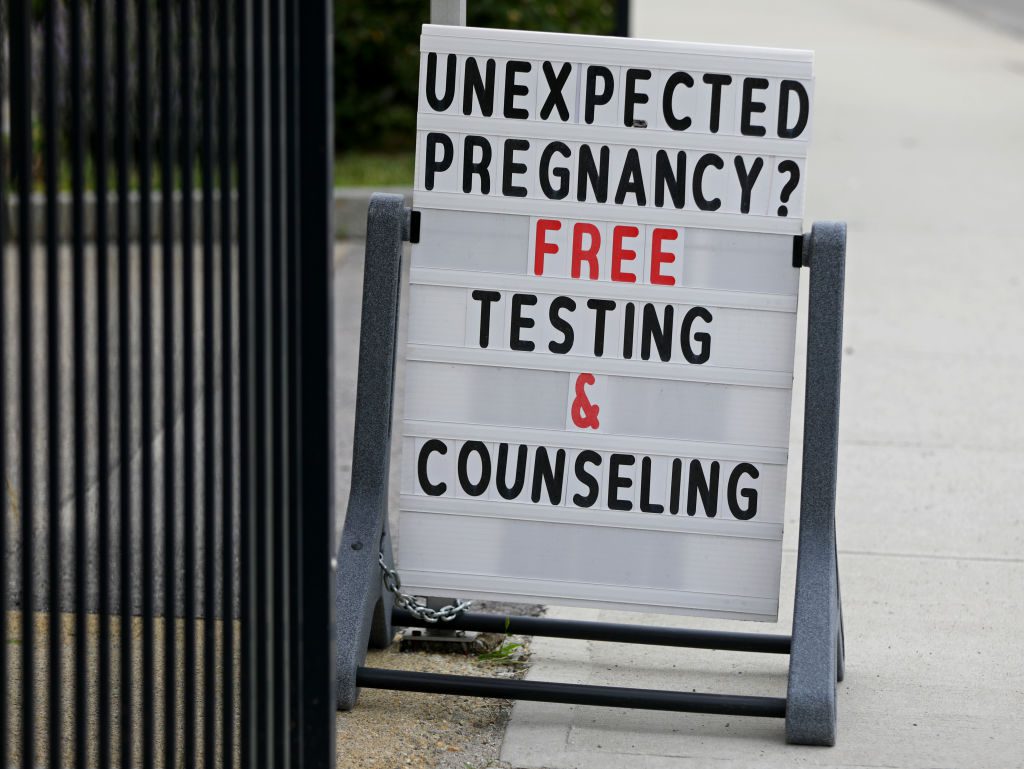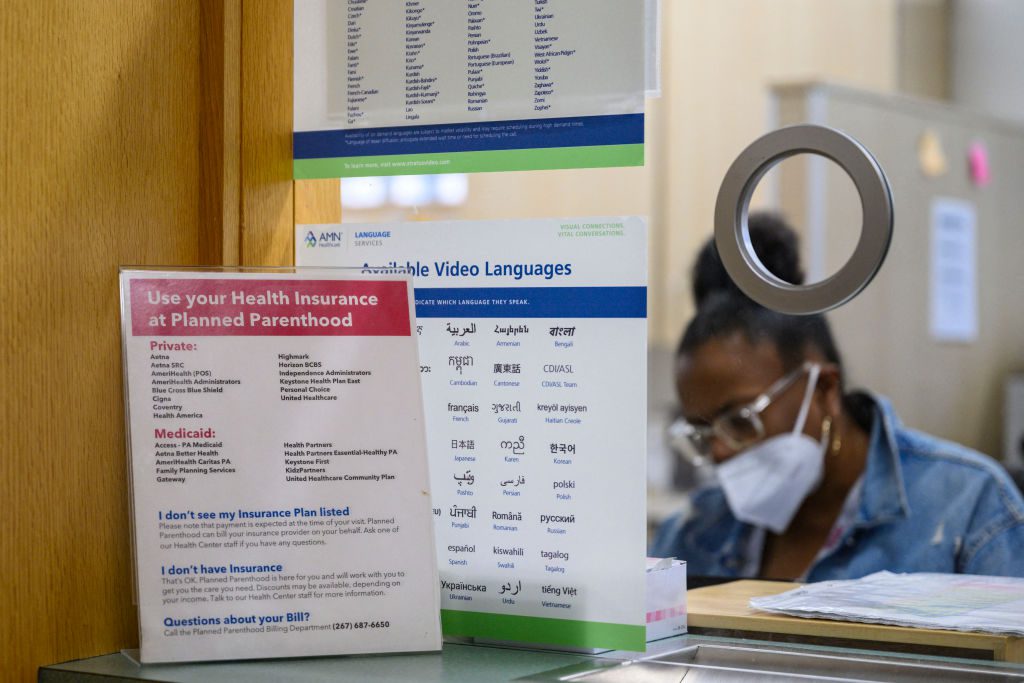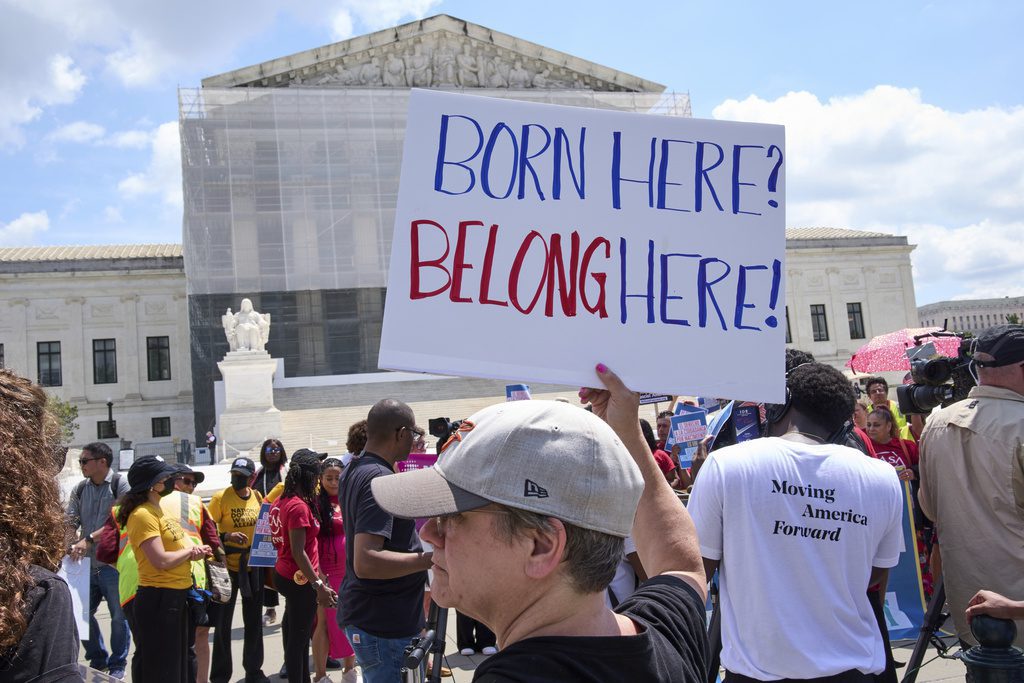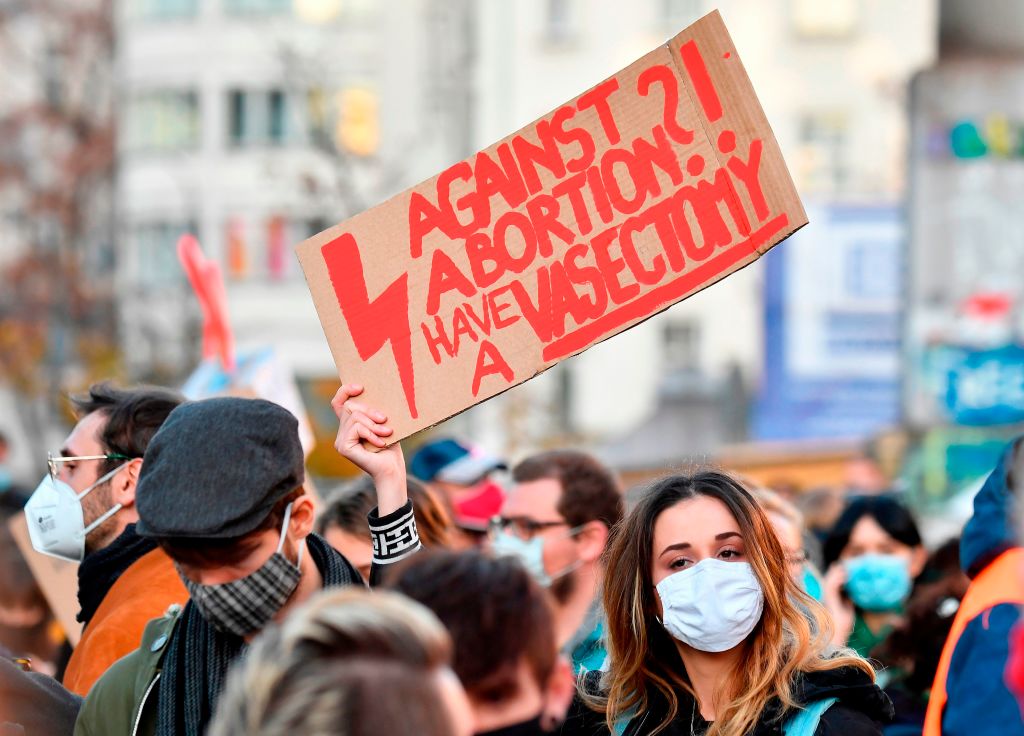
This sandwich sign is outside Problem Pregnancy, a crisis pregnancy center. It is located near a Planned Parenthood center. (Photo by Pat Greenhouse/The Boston Globe via Getty Images)
“If there was a fake cancer clinic giving out false treatments, we’d all be outraged.”
Imagine you need to seek treatment for diabetes, cancer, or another medical condition. You do your research, and you believe you found a reputable clinic. But instead, you walk into a facility that isn’t a medical clinic at all—and they give you false information to deliberately mislead you about your care.
You would be outraged. You would probably get the health department, the state, and as many other officials as possible involved to shut it down.
Yet in Nevada and across the country, so-called crisis pregnancy centers operate this way, posing as medical facilities and targeting people seeking abortion and reproductive services. The main goal of these pseudo clinics is to delay care to women seeking abortions until it’s too late.
“Any time an organization is presenting themselves as health care and then is lying to people by providing misinformation or falsehoods about abortion, that’s a danger to society and to public health,” said Dr. Laura Dalton, Chief Medical Operating Officer at Planned Parenthood Mar Monte, which serves Nevada.
Nationally, there are over 2,600 crisis pregnancy centers, with seven of those centers located in Nevada. More than 75% of these centers are linked to religious, anti-abortion networks, and about 71% of them admit to using deceptive tactics or spreading misinformation.
“Crisis pregnancy centers are a threat to everyone,” Dalton said.
Misleading practices
According to Dalton, crisis pregnancy centers rarely employ actual licensed medical staff and often don’t practice evidence-based medicine. Instead, she said, they lure patients in with the promise of free pregnancy tests, ultrasounds, or counseling, then provide biased or outright false information.
“It’s really important that patients understand what is involved in every medical option, and crisis pregnancy centers do not provide that information in an unbiased way,” Dalton said. “They create a sense of false promises to individuals about the type of support they’re going to give to somebody if they continue the pregnancy, which is unrealistic and false.”
Dalton said it’s all too common for staff at Planned Parenthood to hear stories from women who were seeking an abortion and got duped by a crisis pregnancy center.
“It’s very common and it’s very troubling because the patients come to us confused,” Dalton said. “I’ve seen patients come in with what looked like stock ultrasound images. Then, when we perform an actual ultrasound, the features of the pregnancy don’t match. So, from a physician who has expertise in sexual reproductive health, I have to believe that they were given a fake ultrasound. They’re often given dating [of the pregnancy] that’s much later, so telling the patient they’re much farther along in their pregnancy as a way to deter them from accessing abortion services.”
Adding to the confusion, crisis pregnancy centers are deliberately located near real health centers. Dalton said that in Nevada, there is a cluster of crisis pregnancy centers in close proximity to a Planned Parenthood that are “masquerading as birth control centers or women’s clinics.”
“People are trusting of a place that looks like a medical facility,” Dalton said. “It’s very confusing for patients and when they’re in this time of their life where they’re trying to make a decision about what’s best for them, adding all this confusion and misinformation just causes more distrust.”
Impact on Nevada patients
Nevada has become a sanctuary state for patients traveling from across the country to seek abortion care. That makes the existence of crisis pregnancy centers especially dangerous.
“Think of a patient who can’t access abortion in their home state, arranges childcare, takes time off work, spends money to travel, and finally gets to Nevada—only to end up at a crisis pregnancy center,” Dalton said. “They could be told they’re too far along, sent home confused, and lose their chance for care entirely.”
She added that this kind of deception is not just harmful to individual patients—it undermines trust in the health care system as a whole.
Exploiting vulnerability
Dalton said that crisis pregnancy centers prey on the most vulnerable: uninsured patients, those without regular providers, or those already under financial and emotional strain. These patients often mistake the centers for legitimate clinics, especially when staff wear white coats.
“Patients are smart—they know when something feels off, but by the time they realize, they’ve already lost time and peace of mind,” Dalton said. “In reproductive health, delays can be devastating.
“If there was a fake cancer clinic giving out false treatments, we’d all be outraged. We should feel the same way about crisis pregnancy centers. Misinformation in health care is dangerous for everybody.”

Five reproductive rights bills were sent to Gov. Joe Lombardo’s desk—here’s what they’d do
Gov. Joe Lombardo, a Republican, has a choice to make very soon—break with many Republicans across the country and sign reproductive freedom...

House GOP fast-tracks budget bill that would cut off Medicaid funding to Planned Parenthood
The budget package proposes steep health care cuts—and includes a new push to block patients from accessing reproductive care. In a 30-24 party-line...

Nevada’s “parental consent” abortion law will go into effect April 30, putting vulnerable minors at greater risk
A law that has been on hold for 40 years—one that requires parents or guardians to be notified before a minor receives an abortion—will soon be...










